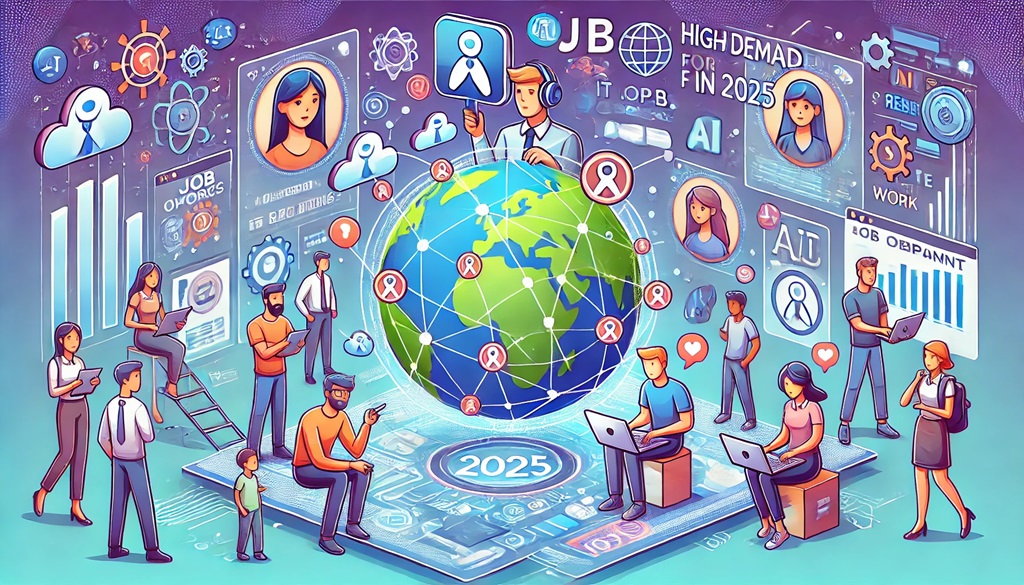
What Will the IT Recruitment Market Look Like in Late 2024 and Early 2025?
Although the IT sector is still feeling the effects of the economic slowdown, forecasts for late 2024 and early 2025 are optimistic. Layoffs are less frequent than in the crisis year of 2023, though the market is not yet fully stable. The demand for IT professionals continues to outpace the available talent pool, especially in areas such as artificial intelligence, IT security, and cloud computing. Despite fewer layoffs, some companies remain cautious and closely monitor new hires.
Experience Remains Crucial
Companies in the IT sector are primarily looking for experienced professionals. Having several years of experience in the field, along with strong technical skills – particularly in areas like DevOps, Java, or Data Engineering – significantly increases the likelihood of landing a job. Junior candidates, i.e., those without commercial experience, currently face more challenges as employers prefer to invest in proven experts.
Too Many Juniors on the Market
Due to the IT boom of recent years, the market is currently saturated with junior candidates, which complicates the recruitment process. Companies are being inundated with similar CVs, leading to an increasing preference for hiring individuals recommended by current employees or industry contacts. As a result, fewer job openings are being posted publicly, even though the recruitment needs remain.
Diversity in Teams and the Role of Women in IT
An increasing number of companies in the IT sector are prioritizing diversity and actively recruiting women, particularly in large tech firms where the number of women in various roles is growing. Data from 2024 indicates an increase in the number of women employed in IT, although men still dominate, especially in senior technical positions. In Poland, women make up approximately 25–30% of the IT workforce, which marks a slight increase compared to previous years. Women are more often employed in areas such as testing, project management, and UX/UI, while their representation in programming roles remains lower – about 21% of programmers in Poland are women. This trend could lead to a more gender-balanced market in the long run.
Return to Offices and the Hybrid Model
While remote work has been a dominant trend in recent years, some large corporations like Amazon, Google, and Meta are now requiring a return to the office. However, the most commonly adopted model is hybrid, with employees spending part of the week in the office and the remainder working remotely. According to the “IT Workplace of Tomorrow” report, 82% of IT companies in Poland plan to continue using hybrid work as the standard after the pandemic. This model is considered the most effective for both productivity and team integration.
Remote work remains popular, especially among developers who value the freedom and flexibility that comes with working from home. However, IT companies that require regular meetings and live collaboration are increasingly leaning toward hybrid models to facilitate direct interactions, which promote better collaboration and team-building.
Cloud and DevOps Specialists in High Demand
Specializations like DevOps, Cloud, and Cybersecurity continue to attract strong interest from employers. Professionals specializing in IT infrastructure management and security can expect stable job offers and competitive salaries, especially in cities like Kraków, Warsaw, and other major IT hubs in Poland.
Kraków Leading the Polish IT Scene
Kraków remains one of Europe’s key centers for modern business services (GBS), continuing to grow as a leading IT city in Poland. Despite global challenges, salaries in the IT sector in Kraków remain stable, and specialists in fields like Data Science, DevOps, and Cloud Computing can expect highly competitive compensation.
AI in Recruitment
Artificial intelligence is increasingly assisting recruitment processes by automating CV reviews and even conducting interviews. This enables companies to quickly and efficiently select the best candidates, significantly speeding up the overall process.
Employer Branding Matters
For IT professionals, money isn’t everything. They are increasingly focused on a company’s values, development opportunities, and the technologies they will be working with. Companies that offer interesting projects and invest in the professional development of their employees have a better chance of attracting top talent.
Continuous Development is Key
Both employees and companies must adapt to the rapidly changing environment. Specialization, experience, and knowledge of the latest technologies are crucial for success. Employees who continuously enhance their skills stand out from the competition, and companies that invest in talent and innovation will be better equipped to face future challenges.
Summary
Although the IT industry still faces challenges, the outlook is cautiously optimistic. Experienced professionals are in high demand, and the job market is gradually stabilizing. Remote work remains important, but more companies are adopting hybrid models. Flexibility, innovation, and adaptability to new realities will be the keys to success. It’s also worth noting that while the IT job market continues to shift toward specialization, the rising skill requirements present challenges for employers seeking qualified candidates.